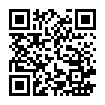Гетеростереотипы в структуре социокультурной адаптации иностранцев, обучающихся в России
Научная статья
Аннотация
Литература
Гасанов И. Б. Национальные стереотипы и «образ врага». М.: РАУ, 1994. 40 с.
Гладких С. В. Этнические стереотипы как феномен духовной культуры : дис. … канд. филос. наук. Ставрополь, 2001. 154 с.
Гридина Т. А., Коновалова Н. И. Этническая самоидентификация в современном социокультурном контексте // Политическая лингвистика. 2016. № 6 (60). С. 45–50.
Давыдов С. В. Авто- и гетеростереотипы русских и немецких студентов : дис. ... канд. психол. наук. СПб., 2009. 226 с.
Донцов А. И., Стефаненко Т. Г., Уталиева Ж. Т. Язык как фактор этнической идентичности // Вопросы психологии. 1997. № 4. С. 75–86.
Липпман У. Общественное мнение / пер. с англ. Т.В. Барчуновой; ред. перевода К.А. Левинсон, К.В. Петренко. М.: Ин-т фонда «Общественное мнение», 2004. С. 384.
Мануковский М. В. Стереотипы сознания в межкультурной коммуникации : учеб. пособие по курсу «Теория межкультурной коммуникации». Воронеж: Воронежский гос. ун-т, 2005. 100 с.
Сабитов Р. Ш. Этнические стереотипы и особенности их проявления в процессе воинской деятельности военнослужащих срочной службы : дис. ... канд. психол. наук. М., 1998.
Сергеева А. В. Русские. Стереотипы поведения, традиции, ментальность. М.: Наука, 2004.
Солдатова Г. У. Психология межэтнической напряженности. М., 2005.
Стефаненко Т. Г. Этнопсихология. М., 2000.
Сухарев А. В., Сухарев М. В. Европейцы и американцы глазами психолога. Минск, 2000.
Филюшкина С. Национальный стереотип в массовом сознании и литературе (опыт исследовательского подхода) // Логос. 2005. № 4 (49). С. 125–139.
Эдвардс Л. Этнические стереотипы поведения. СПб., 2001.
Krasnoperova Ye.S., Konovalova N.I. Grammatical Lacunae of the Associative-verbal Network: Data of Children’s Speech and the National Russian Corpus // Advances in Social Science, Education and Humanities Research. Proceedings of the International Scientific Conference “Digitalization of Education: History, Trends and Prospects” (DETP 2020). 2020. Р. 287–291.
Campbell D.T. Stereotypes and the perception of group differences // Arner. PsychoL. 1967. Vol. 22, № 10. P. 817–829.

Поступила: 18.03.2022
Опубликована: 04.08.2022





